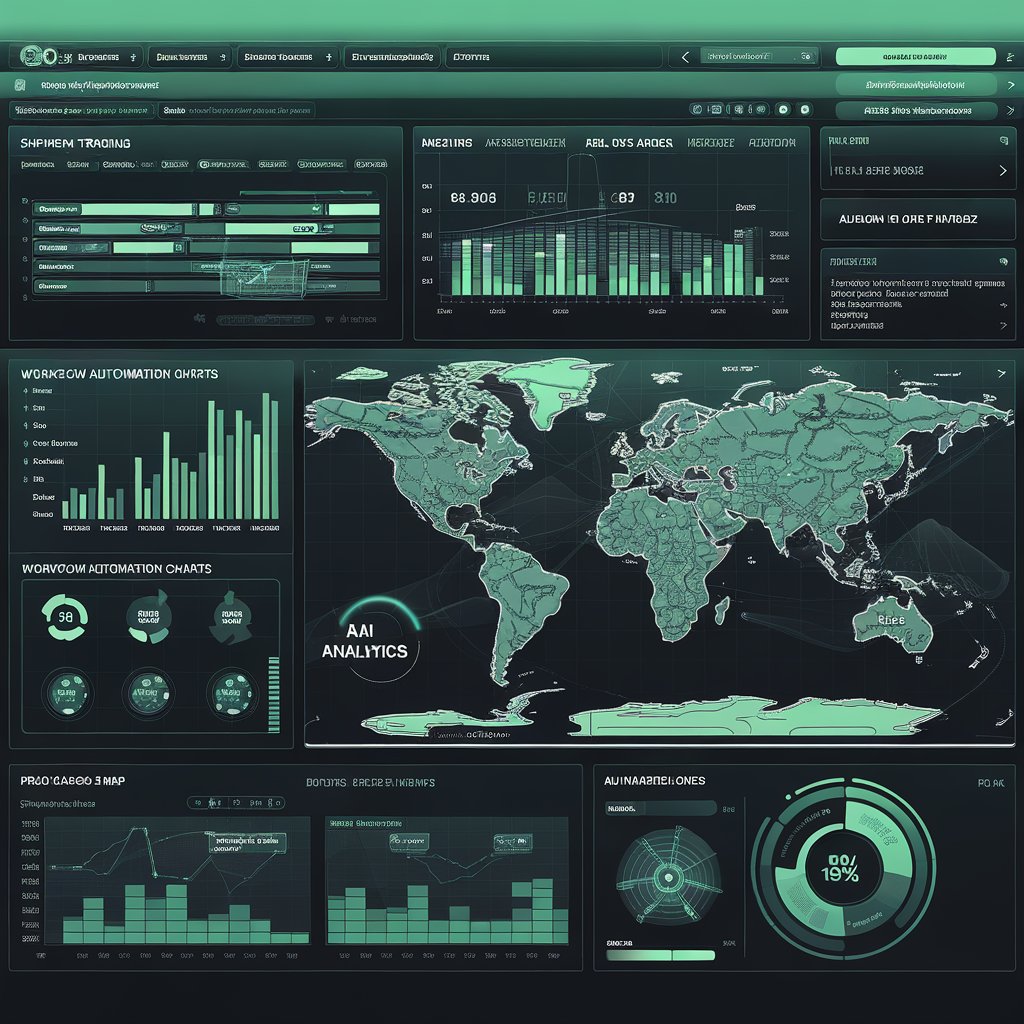Cargo Management Software: Smarter Freight Operations with Linbis

Introduction
This results in inefficiencies, errors, and missed opportunities.
That’s where Linbis comes in.
With its cargo management software, Linbis unifies every part of freight operations — from booking and documentation to tracking and invoicing — inside a single automated, cloud-based platform.
The result? Faster workflows, better visibility, and data-driven logistics decisions.
Step 1: Centralized Cargo Control
Linbis connects every shipment operation into one seamless system:
- Booking management: automate quote-to-shipment workflows.
- Documentation hub: auto-generate bills of lading, invoices, and manifests.
- Tracking integration: monitor real-time status via carrier APIs.
- Warehouse sync: link inbound and outbound cargo movements.
- Customer portal: provide clients with live shipment visibility.
Instead of juggling tools, Linbis gives teams a single command center for global freight operations.
Step 2: Workflow Automation
Linbis eliminates repetitive tasks that consume hours of manual work:
- When a booking is confirmed, it automatically triggers document generation.
- When a shipment arrives at port, the system updates status and alerts stakeholders.
- When customs clearance completes, billing is initiated automatically.
- When POD is uploaded, invoicing and client updates are sent instantly.
Every cargo process becomes a self-running workflow, improving consistency and speed across departments.
Step 3: Real-Time Cargo Tracking
Through Linbis’ integrated tracking engine, logistics teams gain live visibility across all modes:
- Air, ocean, and ground tracking through carrier integrations.
- IoT sensor data for temperature and humidity-sensitive cargo.
- Dynamic ETA updates with predictive adjustments.
- Geofencing alerts when shipments reach checkpoints or ports.
With this level of visibility, managers can react instantly to delays or disruptions instead of finding out after the fact.

Step 4: Data-Driven Decision Making
Linbis includes built-in analytics that turn raw cargo data into actionable insights:
- Performance dashboards showing delivery accuracy and route efficiency.
- Cost breakdowns per shipment, mode, or customer.
- Predictive analytics for demand forecasting and rate optimization.
- CO₂ emissions tracking for sustainable logistics.
With AI-powered reporting, Linbis helps teams make smarter, faster, and greener logistics decisions.
Step 5: Seamless Integrations
Linbis cargo management software connects easily with key logistics systems:
- ERP and accounting tools: for billing, payments, and cost tracking.
- CRM systems: to synchronize customer communication and service data.
- Customs and compliance portals: for document submission and validation.
- WMS and TMS: to align warehouse operations with cargo movement.
Integration means less data entry, fewer errors, and smoother global coordination.
Step 6: Scalability and Multi-User Collaboration
Linbis is designed to grow with your logistics operation:
- Multi-user access for teams across regions or branches.
- Role-based permissions to ensure data security.
- Custom dashboards per department (operations, finance, or sales).
- Cloud scalability to handle thousands of shipments without downtime.
This makes Linbis ideal for both small freight companies and global logistics enterprises.

Advanced Features
- End-to-end cargo visibility.
- Automated workflows for booking, billing, and tracking.
- AI forecasting for shipment demand.
- Custom KPI dashboards and analytics.
- Paperless documentation with digital signatures.
Real-World Example 🚛
A freight company in Miami implemented Linbis cargo management software across its import/export operations.
In 6 months:
- Manual data entry dropped by 85%.
- On-time delivery improved by 28%.
- Customer satisfaction scores rose by 32%.
Now, their entire freight workflow — from quote to delivery — runs automatically through Linbis.

Benefits 📈
- Efficiency: Automate manual processes and reduce admin time.
- Visibility: Track all cargo in real time, across modes.
- Accuracy: Eliminate documentation and billing errors.
- Scalability: Handle more shipments without extra staff.
- Profitability: Optimize costs and improve decision-making.
Conclusion
With cargo management software powered by Linbis, freight forwarders gain total control over logistics operations.
By automating workflows, centralizing data, and enabling AI insights, Linbis transforms cargo management into a strategic, real-time, and scalable process.
In a fast-moving logistics world, Linbis gives companies the visibility and automation they need to stay ahead.
